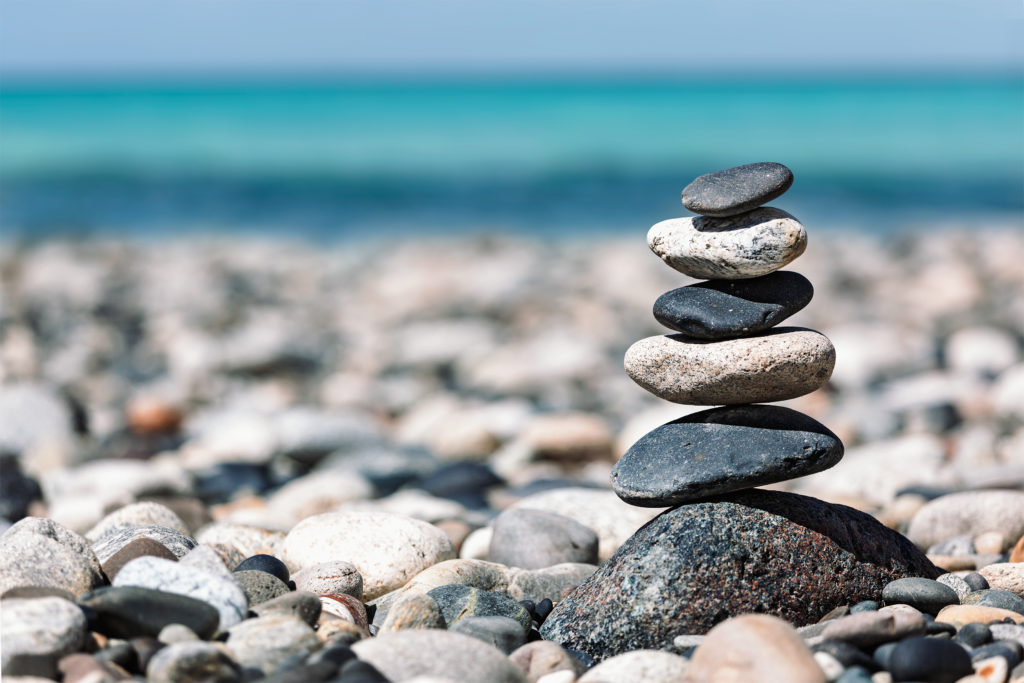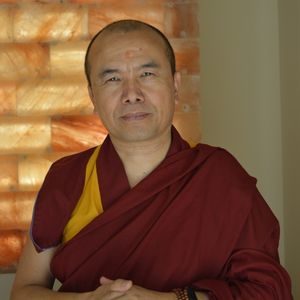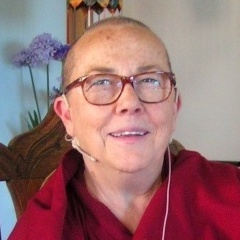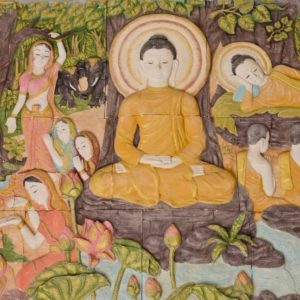In Portuguese, we say of someone who persists in doing something that is futile on the face of it, that they are “drying ice.” Sometimes it seems to me that I spend a great deal of my life trying to dry the ice.
In my efforts (such as they are) to make things a little better for myself and others, there is one place where I stumble again and again and again and again. Since I realize how silly it is, I never set out to do it knowingly, but I often catch myself in the act after I’ve started. In brief, I find that I keep trying to fix samsara. I develop these really neat plans for how I’m going to make sure that difficult situations are resolved, that I won’t look bad in front of others, that something I’ve worked for won’t be lost while I’m distracted. I develop all these hopes for the ways the events around me are going to work out, what people will say, what they’ll do, what they’ll stand up for. When a single crisis is averted, I breathe a sigh of relief. (Isn’t that silly?) And whenever something goes cataclysmically wrong, I am shocked. (Isn’t that silly?)
According to the Buddha’s teachings, the moment in which we finally step onto the path for real is the moment when the penny drops and we finally figure out, “Oooohhh! I get it! No matter how much I wipe it, I’m never gonna dry the ice! It’s made of water through and through! If I don’t want to get wet, I’d better let go of it! And if I don’t want others to get wet, I’d better lead them away from it, too!” “Oooohhh! I get it! No matter how much I exert myself with every type of cleverness and effort, no matter how much I pray and dedicate, I’m never gonna fix samsara! It’s made of problems and suffering through and through! If I don’t want to suffer, I’d better let go of it! And if I don’t want others to suffer, I’d better lead them out of it, too!”
You can’t fix samsara, so don’t even bother. This can sound defeatist, pessimistic, and depressing, can’t it? But I think this only happens when we mistake samsara for our lives, or for reality. After all, if it were the case that we could never fix our lives, or that we could never fix reality, then there would be only one Noble Truth, and, in fact, there would be no point at all to practicing Dharma. In reality, though, as true as we may find the First Noble Truth to be upon honest and thorough examination, we must never forget that there are still three other Noble Truths to go! We can definitely achieve true happiness, and there definitely is a clear-cut way to do it—it’s just that trying to fix samsara ain’t it. In fact, the logic that proves the former is the same as the logic that proves the latter.
Of course, it’s not that we should neglect our efforts to improve things for ourselves and others here and now, in whatever ways we can. (His Holiness the Dalai Lama, for example, says we should spend 50% of our time on Dharma, and 50% of our time working on the matters of this life.) It’s just that we should never confuse the value of improving the accommodations of those in third class with the value of finding a way to get everyone the hell off the Titanic. These are both critical projects. To think that the first one doesn’t matter is, perhaps, to be a fundamentalist. To think that the first one is enough is, without question, to miss the plot.
In my own case, if it were not for our Meditation Center, then perhaps I would have long ago drifted off and gotten lost in my attempts to dry the ice. But because I am anchored to the center, I keep returning again and again to the teachings, to the teachers, to the Dharma friends, who gently, patiently, tirelessly remind me again and again and again and again when I am veering off course and making my same old mistake again. “Oh, Gus, wait!” the teachings call to me, “Remember your thing with trying to fix samsara? Careful!” For as long as my mind continues to insist on making these same mistakes, for that long I will continue to need, and be deeply grateful for, your help, so that I don’t drift off forever among the icebergs.






